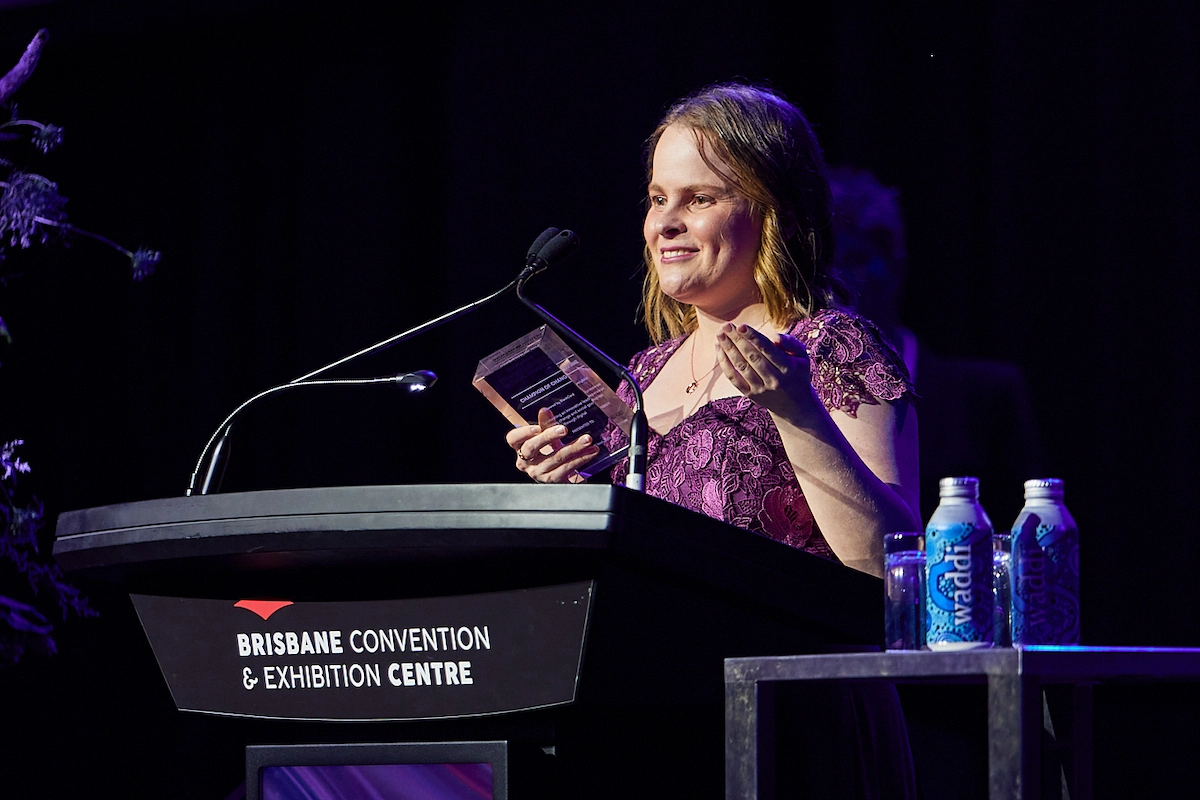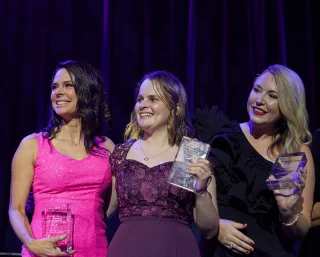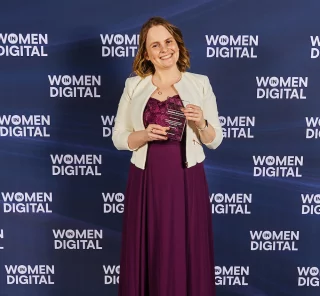2023 Women in Digital Awards Winner Series: Q&A with Renee Noble, Champion of Change

Introducing the 2023 Women in Digital Awards Champion of Change powered by BlackCard, Renee Noble!
Renee Noble isn’t just your typical CEO. She’s truly a force to be reckoned with in the tech world as CEO of Tech Inclusion, CEO and Founder of ConnectEd Code and if that’s not all, she is also a Cloud Advocate for Microsoft. Her passion for technology, education, and community is at the heart of her professional journey.
Renee’s nomination for Champion of Change was centred around her incredible work with the Girls’ Programming Network (GPN) working to improve tech education for people of all ages and levels of experience, particularly women and girls.
Renee is really living and embodying the “if they can see it, they can be it” motto which has been evident in every step of her career journey! Her achievements as a champion for women in digital is nothing short of outstanding.
We were thrilled to talk to our 2023 Champion of Change about her winning entry, career journey and more.
Click here to meet all the 2023 Women in Digital Award Winners.
Congratulations Renee! We are huge fans of your work in the industry.
To try and sum up who I am at my core, I’m a person who loves to give to other people. Being able to build other people up is when I feel great, and helping other people flourish is how I feel like I am doing my part in the world. With that, I am also a person who goes all in on things. I struggle to do things by halves (but I am trying to have some more chilled-out hobbies now!) If I see the benefit or potential in something I want to give it my all, I want to see how good something can be, and I want to see what I have in myself to be able to make that a reality.
I’ve always been very motivated to prove what I can do, maybe originally this was to prove to others what I can do, but these days it’s more about showing myself how much I’m capable of. I just love figuring things out, learning what I need to take things to the next step, and working hard to make it happen. I could definitely have been described as a workaholic for a lot of the parts of my journey to this point, but along the way I’ve realised that all the opportunities I had to do all that work has been what lifted me up to this point, and that sharing the work around will not only benefit me by reducing my workload to closer to normal human levels but also make space for other people to have those same opportunities.
It has been a very conscious decision of mine to recreate opportunities that I had when I first joined GPN for as many people as possible. Being thrown in the deep end a little my first time at GPN helped build my confidence in my tech skills immensely, and having the support of the people around me was one of the things that made me feel like I had found a home in the tech scene. At that time, GPN was a tiny little thing with a tiny group of volunteers. Everyone had to do things they wouldn’t necessarily sign up for, things they didn’t think they were “qualified” to do. These days we have plenty of experienced volunteers, but it’s part of the culture I set out to establish to make space for those experiences – giving people a little bit of a push to take on giving a lecture, running a room, or leading a whole event.
And to bring our readers up to speed, could you give a little pitch for Tech Inclusion and ConnectEdCode. How did ConnectEd Code come to be?
So firstly, Tech Inclusion is the charity that I co-founded around the already existing GPN program. GPN had existed for over 13 years when we founded Tech Inclusion two years ago. Until then we had been under the umbrella of various organisations, but we thought it was about time we went out on our own. Now we have set up Tech Inc. (yep that’s what we call it for short! Our org where the Inc. stands for Inclusion!), we have a lot more ability to be agile, and to work with industry partners. We’re always looking for more sponsors and more university partners that can help expand and grow our program around the country.
Within Tech Inc we’re also looking at different ways to build on the work we are doing with GPN, providing more opportunities for our tutors, trialling a new program for year 3-6 students, and many other things that are on the to do list. It’s still all volunteer-run, but we hope to get to a place where we can have people working on this as their job, to help us achieve all these benefits for gender diversity throughout the tech education and career pipeline, as well as potentially other marginalised groups.
ConnectEd Code is actually also inspired by my GPN work. In 2020, everyone was having a bit of a watershed movement, I think. It was then that I realised that I had built up a huge amount of skills and a huge network through my work on GPN and they weren’t really being recognised and were under utilised at my job at the time. It was then that I decided I wanted to tackle the problems I wasn’t getting to take on in my job.
This was about tackling delivery of the mandatory Australian technology curriculum by really listening to teachers and working with the limited time they have and the constraints of the school system. I knew a lot of the pedagogical learnings I had from GPN would be something that could benefit a lot of people. Since then I’ve come up with a lot of really creative ways to work with schools to make meeting their requirements easy, while also having kids that are really excited to learn about technology. It’s all about bringing Coding together with content, community, and curriculum. You can do a lot of cool stuff with that as your basis, like have teams design and code the tech for an escape room, or solve a murder mystery using their hand-coded detective devices.
 The crux of your nomination is GPN. Tell us more about this program and what you have achieved?
The crux of your nomination is GPN. Tell us more about this program and what you have achieved?
I joined GPN in 2014 when there were maybe 30 girls learning to code each term at a workshop in Sydney. In 2023 we taught 1500 girls to code around the country! And that’s not even back to our pre-COVID peak attendance of around 2000 a year, since some of our GPN nodes only started back up about a year ago, and a lot of the students have graduated high school and now become GPN volunteers.
When I joined, having a nationwide network of GPN nodes was not something that was on the cards, I don’t know if that had even been imagined. But today we have nodes in Sydney, Canberra, Perth, Melbourne, and regional Tasmania. And we’ve had four others along the way we hope are back on deck soon!
It’s amazing to see how GPN has spread over the country in less than 10 years, the full story goes something like this…
About a year after I joined, I discovered I had accidentally inherited the leadership of the program, and I was hooked. As I’ve mentioned, GPN was somewhere that felt like a home for me. I wanted to help more students and volunteers to find out about it. It felt like I was giving them a gift!
With a (big) handful of commitment, I was able to add some of the hands-on activity ideas we had been talking about for at least as long as I had been there. And with this I also made space for other ideas from our other volunteers to shape the event, adding our mentoring sessions for senior school students that has meant that a lot more students keep coming to GPN throughout their senior years, seeking that support as they look to their futures.
The student population at the events started to rapidly grow. Girls were bringing their friends, who then went on to bring more and more friends. At the same time, I was racing to reach out across the tech industry to find as many women to volunteer as possible to make sure we had enough volunteers for all the kids! This led to us having a richer, more diverse range of volunteers from a variety of tech, teaching, and other sectors, at various stages of their careers.
Eventually, we reached our cap in Sydney, there simply weren’t more than 180 computers we could use at the same time. We ultimately ended up having to add an extra day of the workshop, because so many girls were upset to be missing out. We had a problem that no one foresaw, too many girls wanted to learn to code.
And, while there were girls we knew were missing out in Sydney, surely there were girls around the country who would also love to go to a GPN workshop. Canberra was the first to jump on board, with support from ASD, and soon we had Perth, then Cairns, Mackay, Adelaide, Burnie, Melbourne, and Brisbane. In bringing on board people and partners from across the country I spent a lot of time working out what it really meant to be a GPN node. And then spent a lot of time making sure our content was something that could be delivered by the volunteers on hand at every location around the country, from the middle of Sydney where software developers are plentiful, to regional Australia where GPN events were run by passionate teachers. Finally, finding more ways to help more GPN die-hards get on board to help grow and support the program, and give them a methodology for spreading what GPN is, why we do it, and how to recreate it, to a diverse range of communities around the country.
We now have a great team of experienced GPN volunteers supporting nodes around the country, travelling to new nodes and supporting them as they come on board. And all our nodes are working together to support the growth of GPN nationally, sharing the knowledge that they have gained in their own communities and experiences. This in particular is something that has helped us thrive in recent years and looks to have us scale faster than ever into the future.
How are you planning to grow the program in years to come?
In 2024 we are hoping to have at least two more nodes up and running in capital cities around Australia and to be looking at reaching students in NSW that likely aren’t benefiting from our Sydney workshop. We’d also love to see our Sydney numbers return to their pre-COVID heights, and we’ll be chasing that this year too!
We’re also piloting our GPN Junior program for year 3-6 primary school students in Sydney. There is always such interest in our high school program from parents with younger kids, so we’re trialling a half-day experience designed specifically for that demographic.
Looking further ahead, I’d love to have a node in every capital city by 2026. I’d also love to get some of our regional Queensland nodes back up and running. With our expanded team and the help of our sponsors, I hope to be able to increase support for the hardworking teachers who were bringing GPN to life in pre-COVID years.
We have a lot of other ideas as well, from programs to support uni students who are new to coding, ways to reach more students in schools, workshops on ways to build essential career skills for graduates, and creating opportunities for high school and university students to experience what it’s really like to work in a tech team. These are just a few of the things we want to get done, we’re just waiting on the right partners to help us bring them to life and to energise our operations by allowing some of our volunteers to make GPN their job.
What led you to pursue a career in tech in the first place?
I actually ended up in tech by chance. Living in college my first year of uni a couple of people decided that they wanted to teach me to program at 11pm one night. That was my first ever experience of coding, I didn’t even know that anyone could just get started with it on a regular laptop before that. It really felt like a superpower.
I took to it quite naturally, and I saw it as a way to use all the types of maths and problem-solving that I had loved in high school. I was studying Chemical Engineering and Science degrees at the time, but added a computer science subject, and ultimately squished in another science major alongside my chemistry major in Science. For my chemical engineering honours thesis, I utilised coding and machine learning for sustainable energy solutions, coding my experiments up and leaving them to run overnight, coming back to my beautifully graphed results in the morning (most of the time at least!) Meanwhile, a lot of my peers were whiling away time in the labs, with one eye on their experiments as they slowly completed.
I really loved how I could use coding to solve problems in a new way that multiplied what I could do by myself by a factor of millions. I just had to know the instructions to tell the computer. I’d found ways to use code in my chemical engineering internship as well, to make processes easier for everyone and the huge amounts of data they had. I loved the feeling of scripting something and seeing the results come out and having achieved something or having uncovered the next problem to solve.
Upon finishing uni, I decided that I was going to take the computer science route, rather than the engineering one. I got my first full-time job at what is now Data61-CSIRO, then was in an ed-tech start-up for a while, then started my own business, and now work for Microsoft – all while I was leading and growing GPN.
Tell us more about your role and what it is you do in a week as a CEO and Cloud Advocate.
While all three roles, CEO for Tech Inclusion/GPN, CEO for Connected Code, and Cloud Advocate at Microsoft are similarly summed up as tech + education + community, they are all very different in terms of the kind of work I am doing for each of them.
For Tech Inclusion/GPN, as we grow and as we solidify the charity, it is becoming more high-level work. I am spending more time looking at contracts, policies, and prospectuses than I was before, which are all new skills I’m getting to build. I also only get to move up to these new tasks because there are other amazing volunteers who are taking on things that I used to spend a lot more time on, like educational planning and event management. I am still very focused on the mission, and how to spread that mission to other locations, so after my day job at Microsoft, I often have meetings to connect with the GPN Committee running leading GPN nodes around the country, with teams starting up new projects, or spending the weekend with my powerhouse COO, Alex Penna, at one of our classic “GPN Planning Parties”.
For ConnectEd Code, that is another one where I am lucky to not be taking it on alone anymore. Since I started at Microsoft, my fiancé and CTO, Jack Reichelt, has taken a lot more of the business. Most of my work for that will be chatting with him over lunch about new initiatives that we want to pursue in relation to new curriculums and the introduction of AI tech in schools. I’m in the loop in the education industry in a variety of ways, so most of my work is to loop Jack in so we can connect meaningfully with the schools and organisations that need some help in the tech space and provide them with a solution that works for their constraints and desires. Occasionally I might need to take a couple of days off work at Microsoft so I can go and be part of a cool event where we work directly with the kids, like getting a whole school year of over 150 students, coding to solve a murder mystery with data science, launch a weather balloon full of sensors, or build and code the electronics of their own escape rooms. Those are very exciting days to be a part of!
Microsoft is my full-time job, so that follows a bit more of a normal structure, except for the fact that I’m here in Sydney, a very awkward time for engaging with a global team during office hours. But, luckily, as a Cloud Advocate, the kind of work we do can be largely done independently. This might be writing a new module to be released on Microsoft Learn, working with the Microsoft Reactor in Sydney to host a YouTube livestream with a guest, writing a blog discussing an upcoming event, or working on collecting diversity and inclusion stories to be shared both internally and externally as part of my work on the D&I committee for my organisation. We’ve had so much cool new tech coming out from Microsoft in the last year, so some time has to go into getting up to speed with that, and then telling other people about what it was like to get started with it.
How do you manage to juggle it all while keeping your energy so high?
I really love giving opportunities to people, whether it’s the chance to learn, the chance to volunteer, the chance to join and be part of something. I think that’s what keeps me going, I’m just genuinely excited about what I get to offer people, and how they respond when they realise the possibilities they’ve unlocked through learning and building skills.
Also, having people along on the journey with me is now a major source of energy and momentum. I can’t pour as much raw energy in as I did when I was 10 years younger, but having a team who believes in the mission as much as I do and knowing that we will keep the momentum going as a team, it makes it both a lighter lift for myself and everyone, and makes me want to do it even more.
What does winning this award mean to you?
To be recognised in this way is a major honour. I’ve been doing this a long time, and you do kind of get lost in the day-to-day, never-ending nature of it. There’s always something more to do. But a moment like this is one to stop and reflect on all that I have been able to achieve on this journey, and all the people who are now on the journey with me.
Also, having this moment for GPN to be seen by a bigger audience is always so meaningful. That’s what all this work is about, and giving it a moment to be seen and knowing that could lead to an even bigger impact, that’s incredible.
You have achieved incredible company growth so far! Do you have any key personal highlights?
The highlights from my GPN journey really have been around uncovering the potential I could see in GPN and bringing that to life all around Australia. It’s amazing how many requests we get for GPN to start in different communities, or people travelling great distances to get to the closest GPN to them. It is also very special to me to know how many people are carrying GPN forward, to know that this idea to make GPN this crazy big thing is shared by others and together we can ensure GPN gets to continue into the future.
I have also got to have a lot of personally exciting opportunities around my work with GPN, doing photoshoots and events with other incredible women for Women’s Weekly, CREATE magazine, and the AFR 110 Women of Influence. To be included among lists of such talented people is both very humbling and empowering.
We’re so excited to know… what is next for you? Do you have an ultimate career goal or North Star?
I think we’re really in a moment in time where we’re seeing how important it is for everyone to have an understanding of technology, whether we think about how AI will play into our futures, or the impact of cybersecurity on our everyday habits. I think equitable access to opportunities around understanding how we can change our own futures with technology is key.
Whatever I’m doing, whether it’s through GPN/Tech Inclusion, ConnectEd Code, Microsoft, or something else, is about bringing tech education opportunities to the community in a creative way. There are so many exciting things about technology, I think it is worth the extra effort to think about how we can make the way we learn about tech as exciting as the opportunities that knowing how to code and create new technology has. I want to be at the front of that, taking on the things that people say “that sounds great, but impossible”, doing things that people just don’t know how to do, or creating whole new ideas that shake up how we think about engaging with technology. If I can do that, and make it easy for teachers, students, and learners of all ages to be able to use, then I’ll know I’m heading in the right direction.
It is commonly recognised that there are fewer women in technology. What do you think could be done to improve diversity in tech?
I have so many opinions on this, and it’s hard not to explain all the principles we have behind what we do at GPN. So I’ll sum it up in a few things we hold close to us, and some things we want to see even more of to help people at all stages of their tech journeys.
GPN’s core values are around ensuring that coding is fun, social, and represents a diverse community of people, not just “hacker” style people, but anyone, you can love ballet, baking, or basketball and still love coding. We also want to show more people that coding is relevant to them and can help them solve problems they care about, whether that’s helping people, the environment, or animals – coding exists across all industries and can be combined with nearly any aspiration in a new way. Being in a welcoming culture of diverse minds makes tech a fun place to be where we solve important problems together.
Another key component for people at all stages of their learning and career journey is role models. And that can’t just be one role model you see on the internet, or one who visits your school once. It needs to be a diverse set of role models at different stages of their own journey. The ability to interact with these different people is a core way to plan your own journey, seeing where you can be in 1 year, 3 years, 5 years, 10 years’ time. It’s a lot easier to hopscotch your way to your dream than to figure out the path all on your own.
I’d love to see these principles carried out in schools, from primary school, right through to universities and the workplace. When we focus on the people and problems to be solved first, and the tech tools later, we open up a new world of thought, new ways to work together, and hopefully more welcoming environments that will attract more women, and if we keep it up, will retain them too.
If someone wanted to get involved with Tech Inclusion or ConnectEd Code, are there any opportunities to do so?
To get involved with Tech Inclusion the best thing you can do right now is support GPN. If you’re high up in a company, find a way to sponsor us! Check out our prospectus – https://gpn.org.au/sponsor
GPN also needs university partners, that’s how we bring GPN to new locations. If you have contacts at a uni in a city that doesn’t have a GPN, we need to hear from you! You can reach us at info@girlsprogramming.network
And for individuals, if you are a woman or a gender-diverse person, volunteer for GPN! There’s so much to give and so much to get in return. You never know where it’s going to take you, I think my story is a great example of that. GPN is everything we can collectively imagine it to be. Fill out our tutor sign-up form: https://gpn.org.au/tutor
As for ConnectEd Code, we’d love to hear from anyone who wants to bring coding to their school or community group. We love working with individuals to make sure we give them the help they need, whether they need teacher PD, an awesome workshop for dozens of kids, or some tips and tricks on coding projects. We take pleasure in figuring out the hard stuff for busy people! You can reach out to us at info@connectedcode.org or check out our website: https://www.connectedcode.org/
 What do you believe is the importance of industry awards such as the Women in Digital Awards?
What do you believe is the importance of industry awards such as the Women in Digital Awards?
There are a lot of people out in the world trying to do their best, trying to do something incredible, or something that goes against the grain. This is often true for women in tech, just trying to fight the uphill battle to succeed as a minority group in tech.
Industry awards like the Women in Digital awards are a moment to take stock of what you have accomplished and take in the fact that while you might not have finished your goals yet, you are doing something amazing and to feel the support of your peers and the industry smiling upon you. It’s a nod to let you know you’re going in the right direction and to not stop now, you’ve got even more great things ahead of you.
Renee, if you could leave the Women in Digital community with one parting word of wisdom, what would it be?
I look at myself as someone who doesn’t have any innate talents. Might seem a bit self-deprecating, but actually it’s to remind myself that everything I have accomplished is something I figured out and worked hard to get.
If there is something that you want to accomplish, (that doesn’t rely on some unchanging characteristic, like being 7 feet tall) you can get there. You might have to learn something, there might be some hard yards to put in, you might fail a bunch of times along the way, it might take a lot longer than you imagined and some days are going to be harder than others, and you might even need to inspire some people to help you on your journey. And when you do get there, you’re going to be even more proud of what you have accomplished for everything you have overcome along the way.
If I had to say I have a “talent”, it’s that I want to make things happen and that I’m prepared to work hard to get there. If you decide you want to say the same things about yourself, then I can’t wait to see what you do.
Once again, congratulations Renee on this accomplishment and thank you for taking the time to chat with us!
To read more about our 2023 Women in Digital Award Winners, click here.

